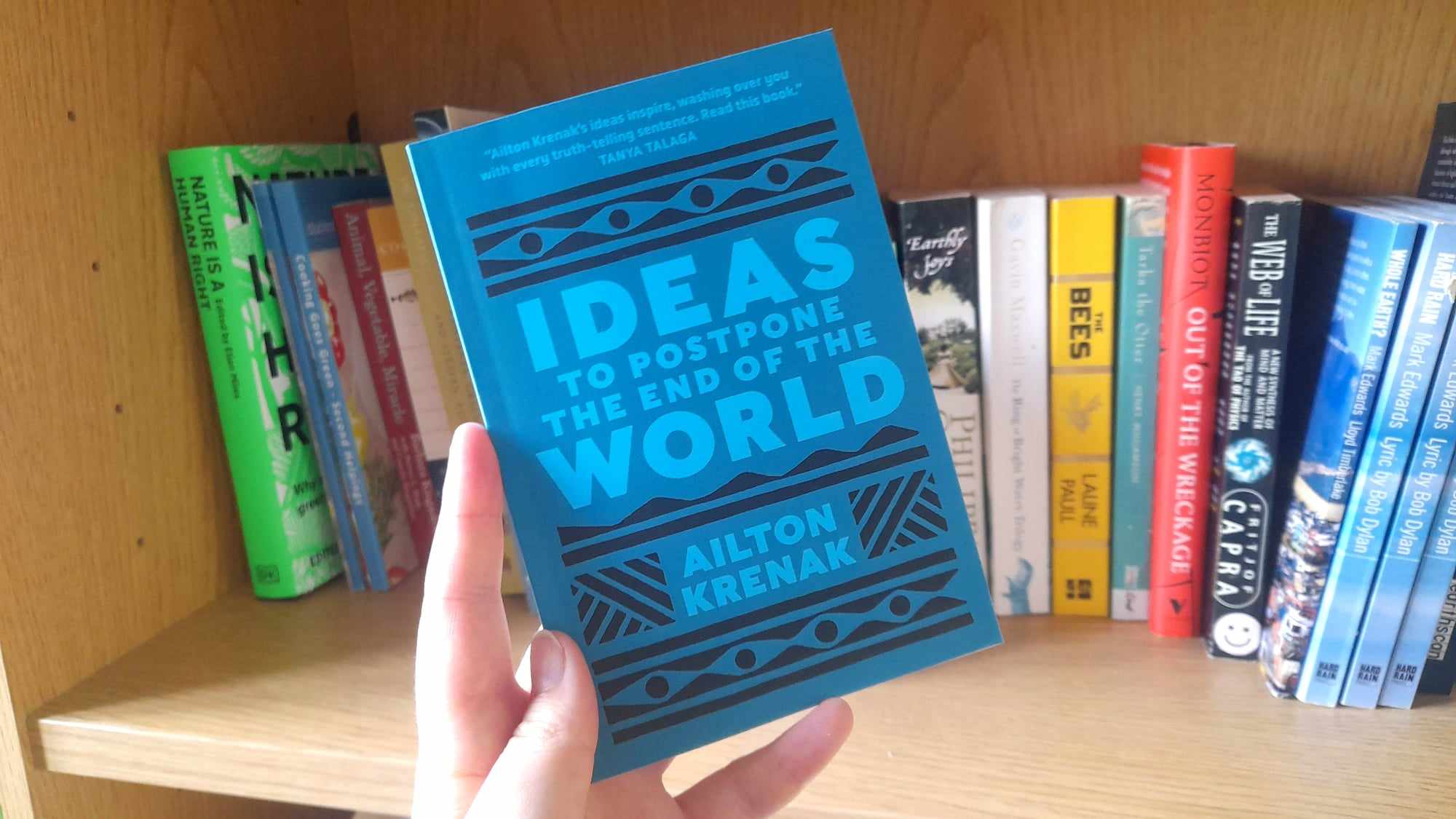This book is a compilation of talks and an interview given by the activist, thinker and indigenous leader of the Krenak peoples of Brazil, Ailton Krenak, while he was visiting Portugal between 2017-2019. Ailton traced back the route of the Portuguese ships that docked at Brazil’s shores over 500 years ago to address the colonisers. This was not an easy decision to make, but he was not there in anger. Many years have passed since he painted his face war-black to confront the Brazilian Assembly in a protest for indigenous rights in 1987. This time what drove him was more akin to empathy, to a willingness to share ideas to postpone the end of the world, from a point of view of people who have been living this experience for the past 500 years to the rest of us, who are facing it now.
The Anthropocene has caught up with the western civilization, the global north, in the shape of extreme weather events, global pandemics, climate and biodiversity crisis and cautions us that the end of our world is nigh. To Krenak, postponement lies in acknowledging that there are different ways of being, that the causes of these disasters are not equally shared across ‘one humanity’ but are fostered by feelings of superiority and detachment from the rest of a living world experienced by the prevalent culture.
In his words, “For a long time we have been alienated from the organism to which we belong – the earth. So much so that we begin to think of Earth and Humanity as two separate entities. I can’t see anything on Earth that it is not Earth. Everything I can think of is part of nature.” And continues, “While humanity is distancing itself from its place, a bunch of savvy corporations takes over the earth.” Once a place stop being perceived as sacred, we relegate it to the level or resources for industry and extractivism.
One of the best features of the book is how accessible it is. The narrative is fluid, arresting, but also inviting and humorous. Like listening to one of his talks on YouTube, but better because the ideas are really worth hanging on to and re-visiting again and again. It is a little book to be read many times.
It is also a celebration of the wealth of human creativity and imagination. Indigenous people have refused to buy into the fallacy of the ‘promises of civilization’. Their resistance is fuelled by art and poetry, born from a conviction that what they have is good, and what we have is not.
He invites us to see the world with other eyes… Mainstream culture drives us to seeing the living world as a ‘resource’ to be transformed into market goods, perpetuating an economy that values us as consumers, not citizens, and prioritizes the benefit of capitalists rather than communities. Meanwhile Ailton reminds us that “There are plenty of constellations of people scattered around the world who dance, sing, and make it rain.” And they are willing to share with us another story and postpone the end of the world a little longer by so doing.
By Adriana Consorte-McCrea, Education for Sustainable Futures Lead
 Sustainability
Sustainability Bethany Climpson
Bethany Climpson 961
961


